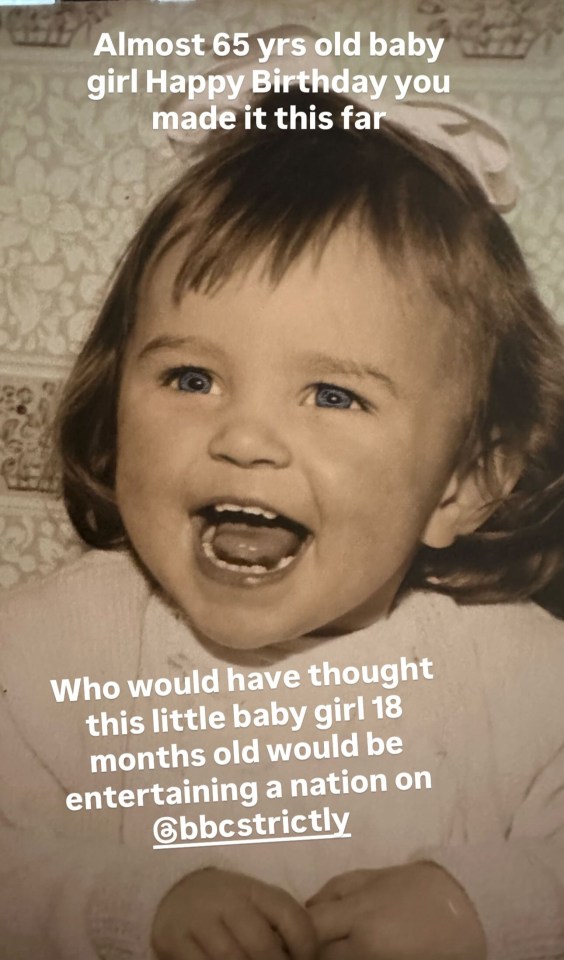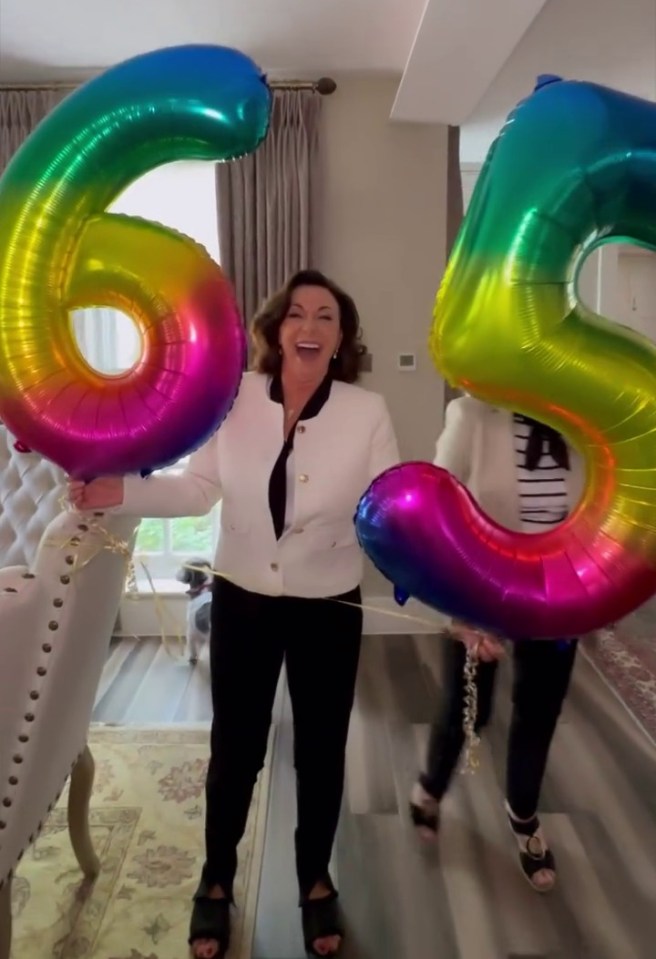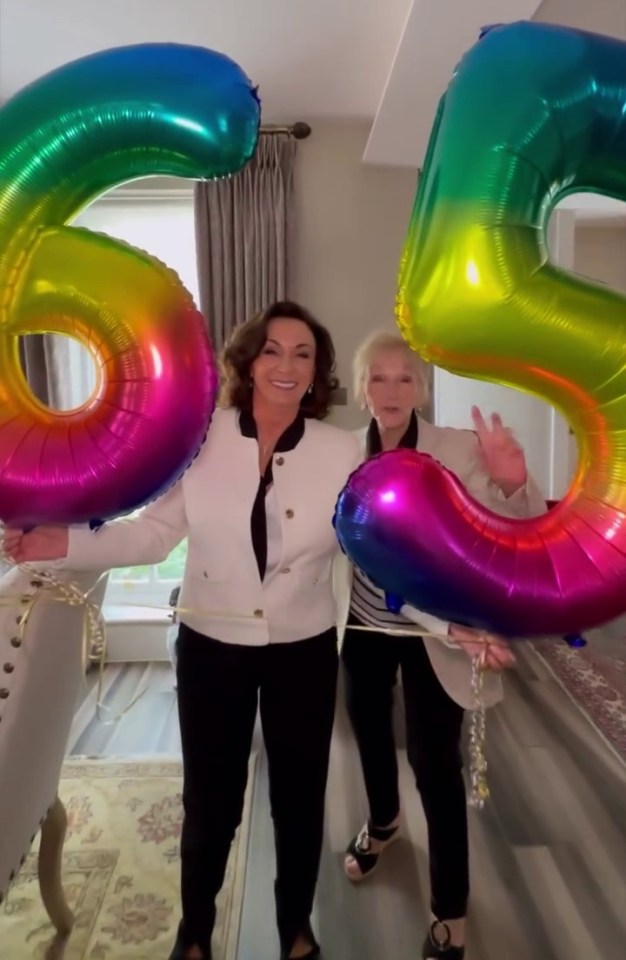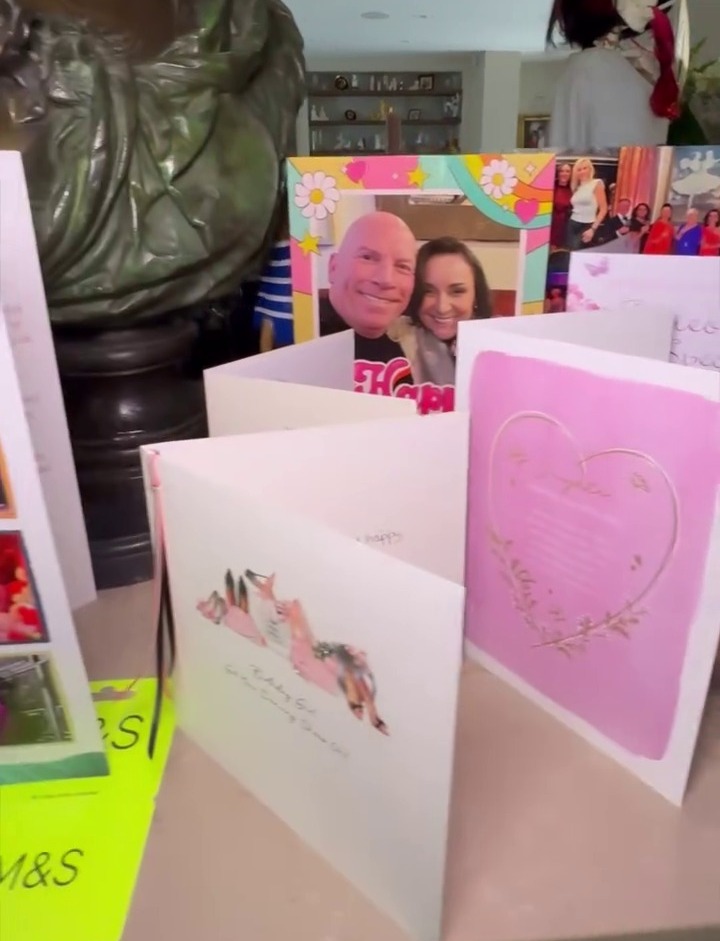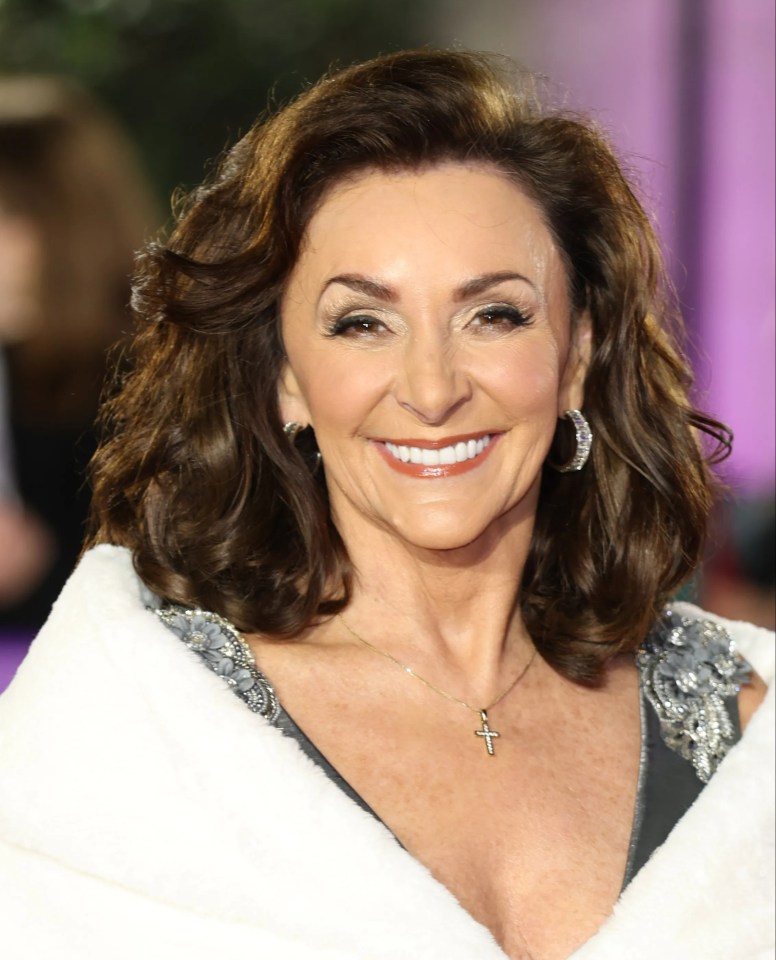THIS huge Strictly Come Dancing star shared a sweet baby snap to mark her birthday – but can you guess who it is?
The professional dancer posted a black and white throwback photo at just 18-months-old.
The star shared the picture as they celebrated their 65th birthday over the weekend.
The beloved BBC star is a three-time British Open to the World Latin American champion and ten-time United States Latin American winner.
But have you worked out who this TV favourite is?
It’s ballroom star and Strictly head judge Shirley Ballas.
The TV legend celebrated turning 65 with an inflatable balloon of her age.
She looked glamorous as always in a white shirt, cream tweed jacket and black trousers.
Her hair was perfectly curled and she finished her birthday look with flawless makeup.
She was seen smiling while holding the colourful balloons and telling fans she was chuffed to have “made it this far”.
“Almost 65 years old baby girl happy birthday you made it this far,” she captioned it.
“Who would have thought this little baby girl 18-months-old would be entertaining a nation on BBC Strictly.”
After retiring from professional competition in 1996, she became an international coach and head judge on the competition show.
She also shared a photo alongside her mum Audrey, 87, as they celebrated the special day together.
Shirley was also treated to gifts from her friends and family including a bottle of champagne from her fellow Strictly judges Craig Revel Horwood and Anton Du Beke.
The TV star was also delighted to receive a big bouquet of flowers and many birthday cards which she proudly put on display.
She wrote: “Feeling rather grateful today… thank you for the overwhelming outpouring of love from you all on my 65th birthday.”
DARK MOMENTS
Just last week Shirley bravely revealed her secret battle with alcohol as she tried to numb suicidal thoughts while in a dark depression.
She feared she was following the same path as brother David, who died by suicide aged 44, when the menopause left her “anxious, depressed and desolate” in her 50s.
However, the knowledge it would devastate her beloved mum Audrey prevented Shirley from acting on her thoughts, instead she turned to wine.
In an extract from her new memoir, Best Foot Forward, published in the Mirror, Shirley writes: “I was anxious, depressed and desolate. I thought I was losing the plot. In my darkest hours I went to some terrible places in my head and while I hate to use the word suicidal, those thoughts crossed my mind.
“I could never have gone through with it because I wouldn’t want my mother to suffer the agony of losing a second child to suicide, but there were certainly times when I thought I’d be better off dead because the way I was living felt so hideous.”
She continued: “I’d been trying to manage the ‘situation’ myself with antidepressants, sleeping tablets, more medication to wake myself up and, I have to say this, alcohol.
“I knew it was becoming a problem. I’d developed a dependency on that evening bottle of red and I was doing all this in private, hiding the extent of my distress from my family and those around me.”
Shirley’s dancer son Mark was the first person to realise something was wrong and together they found a doctor in California to treat her.
After a tearful consultation, Shirley was recommended bioidentical hormone replacement therapy to alter her hormones.
Oestrogen and testosterone were slowly released into her body through an implant the size of a grain of rice, and in just a few weeks Shirley felt like her old self.
Though she still suffers from anxiety, she has learned how to control it and is an advocate of meditation and counselling.
How to get help
EVERY 90 minutes in the UK a life is lost to suicide
It doesn’t discriminate, touching the lives of people in every corner of society – from the homeless and unemployed to builders and doctors, reality stars and footballers.
It’s the biggest killer of people under the age of 35, more deadly than cancer and car crashes.
And men are three times more likely to take their own life than women.
Yet it’s rarely spoken of, a taboo that threatens to continue its deadly rampage unless we all stop and take notice, now.
If you, or anyone you know, needs help dealing with mental health problems, the following organisations provide support:


